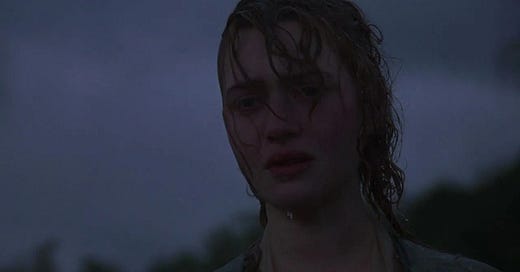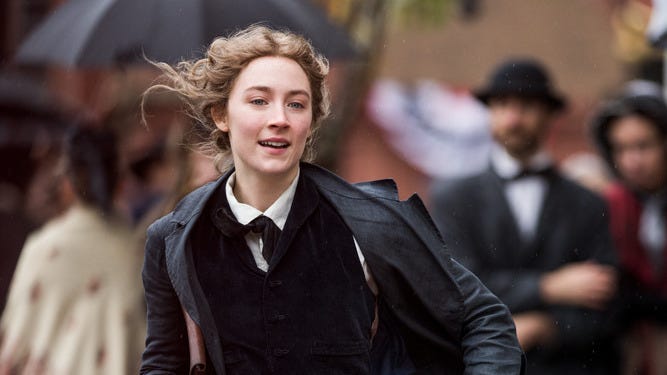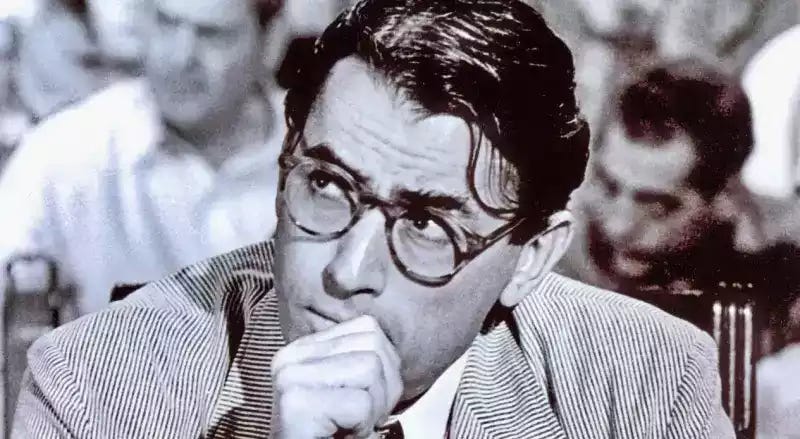“…for there is nothing heavier than compassion. Not even one's own pain weighs so heavy as the pain one feels with someone, for someone, a pain intensified by the imagination and prolonged by a hundred echoes.”
- Milan Kundera, The Unbearable Lightness of Being
Let’s face it: the Diplomats in our lives could absolutely destroy us if they were so inclined, given the amount of highly personal information they have nestled away in their minds about us. One minute, we’re popping round their house to borrow a cup of sugar; the next, we’re discoursing on our childhoods and wondering aloud whether the day we fell off of the monkey bars ultimately led to all our current insecurities in life. These types are the undisputed Heavyweights of the Deep and Meaningful Conversation (aka the DMC), and will suck you in within minutes with their emotional honesty, winsome curiosity, and woo-woo therapy-speak in ways that will delight and alarm you in equal measure.
On the surface, Diplomats may seem calm and serene, even hippyish to some (I bet a not insignificant percentage own crystals and have the infinity symbol tattooed on their ankle, for instance), but don’t be fooled. They are all, to varying degrees, a Jack-in-a-Box. All four of these types are extremely passionate about their core commitments, what they believe to be right and true and good, and this passion does have a tendency to burst forth, unannounced, to the surprise of everyone around them. In fact, of all the MBTI groups, the Diplomats are probably the hardest to predict, such is their mild and yielding nature at war with their fixed and determined inner vision at all times.
Given that many, many writers (and perhaps poets in particular) are likely Diplomats—INFPs dominating the field in intimidating numbers—I have been spoiled for choice with this post in terms of recommendations, and it’s all been a little overwhelming. In a way, I need a Diplomat (preferably an INFJ, if poss) to counsel me through my insecurities relating to this post. And my life in general, really. Any volunteers?
ENFP - The Campaigner
Who are they?: “Hey, whatever happened to that ENFP we used to see all the time?” “Oh, they’re just off rescuing turtles in Ningaloo / teaching crochet to orphans in Kathmandu / running a craft brewery in the Federated States of Micronesia,” etc etc etc—such is one of many conversations that are being had, right now, about the Campaigners in your life. Or, at least, those passing through your life. They’re the fascinating flatmate you had at university who always wore tie dye and forever changed the way you think of the stock market. These irrepressible, bright-eyed globe-trotters will go where they will go, searching for and good deeds to perform along the way. They’re like Tom Bombadil: here for a good time, to impart unbelievable (and often confusing) insights, not a long time (thankfully, because those Bombadil chapters were kind of jarring).
Literary doppelgangers: Lucy Honeychurch (A Room with a View), Jo March (Little Women), Beatrice (Much Ado About Nothing)
I think you’ll like…: What could be a more appropriate read for our perpetually wanderlust-ing ENFPs than a novel about travel—and, specifically, intensely romantic experiences while travelling—with this in mind, A Room with a View by E. M. Forster is an obvious choice for this type. Irrepressibly romantic Lucy Honeycurch (one of the most blindingly obvious ENFPs out there) attempts to repress her highly romantic spirit by trying to convince herself she wants to marry the dullest and MOST repressed man she could possibly find. Seriously, Cecil can’t even kiss her without panicking about his glasses going askew. So, when George Emerson, who pulses with romantic energy like an aggressively monogamous Byron, turns up at the same pensione as Lucy in Florence and kisses her in a field of poppies, Campaigners will shout for joy. That Lucy and George end their journey on their holibobs will just be icing on the cake.
Why not try?: Through the plight of a wayward surgeon-turned-window-cleaner and mysterious bowler-hat-wearing anti-communist artist, Milan Kundera’s The Unbearable Lightness of Being dramatises the central conflict always taking place within the ENFP: will I stay, or will I go? (dun dun dun dun-a-dun-a-dun) Through his characters’ relationships with romantic partners, family members, and the nation state, Kundera explores the idea that some people are ‘heavy’ in their outlook on life—that is, committed, loyal, connected—and some are ‘light’—that is, freedom-seeking, laid back, aloof. As it turns out, while ‘lightness’ seems to be the easier path, especially given the pain endured by the ‘heavy’ when their loved ones stray or leave them, Kundera’s main conclusion is that too much ‘lightness’ is entirely, well, unbearable. Being that ENFPs are a fascinating mix of the light (loving freedom and spontaneity) and the heavy (feeling deeply for others), Kundera’s dilemma will seem tailor made. Just be warned, it is a bit, erm, fruity in places… and, if you watch the film, maybe don’t watch it with your mum. Or at least have the remote control handy.
Special quote:
“I don’t like to doze by the fire. I like adventures, and I’m going to find some.” - Jo March
- Louisa May-Alcott, Little Women
ENFJ - The Protagonist
Who are they?: Front and centre in every people-centric profession, you will encounter the ENFJ, and you will be charmed by their interest in you, their verve and passion, and what seems to be a frighteningly clear-eyed vision of how things should be. The Protagonist is actually a fantastic moniker for this type, and you will notice that not one but two of Jane Austen’s heroines, perhaps the two most famous, are ENFJs—it is a type that easily inhabits a lead role, providing endless fascination for readers. While the ENFJ is vulnerable to accusations of Main Character Syndrome, they actually spend an awful lot of time trying their darndest to build others up and encourage them to take the spotlight. They’re the motivational speakers among us, the small-c charismatic pastors, and the inspirational professors. Their problem is that they’re often just too compelling, and everyone ends up looking to them for the answers, which they don’t always actually have. It’s hard at the top, eh?
Literary doppelgangers: Emma Woodhouse (Emma), Henry V (Henry V), Elizabeth Bennet (Pride and Prejudice)

I think you’ll like…: I rarely think of the ENFJ without picturing Emma Woodhouse (or Cher Horowitz)—her story is that of the Protagonist to a tee. Jane Austen’s Emma explores, very well, the idea that the Protagonists’ greatest strengths—their charisma, leadership, and altruism—can often be their greatest liabilities, if misdirected. It is perhaps for this reason that Austen anticipated that her eponymous heroine would be unpopular with readers, but quite the opposite has proved to be the case (well, mostly). Emma is often considered to be her masterpiece, and film adaptations of the novel abound, always presenting Miss Woodhouse very sympathetically. And how could you not? For all her faults, and that of the ENFJ, Emma is deeply lovable for the basic fact that she really, truly, always meant well. Yes, sometimes her good intentions for others wandered into interfering or condescending territory, but it was all done in goodwill, with a sincere desire for others to flourish—and, in true ENFJ style, Emma learns from her mistakes with the thoroughness of an A* student. I don’t care what anyone says about this controversial heroine, the world needs more Emma Woodhouses!
Why not try?: One of my favourite ENFJ characters, without a doubt is Phoebe, little sister to the most famous troubled teen in history, Holden Caulfield, star of J. D. Salinger’s The Catcher in the Rye. I don’t think Protagonists will be naturally drawn to this notorious novella, not least because it is essentially about an emo wandering aimlessly around New York, and doesn’t seem to have a point to it or an obvious ‘teachable moment’. I would say this is largely the reason Protagonists should read The Catcher—the action of the novel is internal, not external, and Holden’s redemption comes not from a motivational speech or a powerful Instagrammable quote, but from a telling off from his little sister. This is probably part of the reason that it’ll never be made into a film (aside from Salinger’s beligerant wishes for his work to never be televised, love that for him), it’s just not glamourous enough. And I think that’s what ENFJs might benefit from noticing—not every significant conversation needs to fit to an inspirational soundtrack with pull quotes that would look great slapped onto a picture of snowy mountains or something. I also think that Phoebe nicely embodies the kind of charming scrappiness that is entirely characteristic of this type (think: Lizzy Bennet), a trait both infuriating and gosh darned adorable in equal measure.
Special quote:
“There is a stubbornness about me that never can bear to be frightened at the will of others. My courage always rises with every attempt to intimidate me.” - Elizabeth Bennet
- Jane Austen, Pride and Prejudice
INFP - The Mediator
Who are they?: The name ‘the Mediator’ is such a criminally inadequate way of describing this type that I was tempted to substitute it for the much more descriptive ‘the Dreamer’, because that is what the INFP does. They dream. And they don’t dream like the rest of us do, recapitulating odd tidbits from our day into a nonsensical mishmash—no. They dream like its an art form. They probably have a dream journal by their bed. In the same way that all Icelanders are poets, whether or not they actually write (or draw, or sculpt, or interpretively dance), all INFPs are artists—in the way they speak, the way they dress, probably even in the way they hold a fork. They’re just different, determinedly and irrevocably, which can be both a strength and a weakness, at once distinguishing them and isolating them. And isolated they often are, their intense sensitivity often turning the smallest of slights into the most cataclysmic events in their active imaginations—so be gentle with the INFPs in your life, I beg you!
Literary doppelgangers: Marianne Dashwood (Sense and Sensibility), Holden Caulfield (The Catcher in the Rye), Pip Pirrip (Great Expectations)

I think you’ll like…: When in my hipster-y J. D. Salinger phase, I developed a particular love of Franny and Zooey, and enjoyed rolling my eyes dramatically at anyone who cited The Catcher in the Rye as they’re favourite Salinger—yes, correct, I was unbearable. While I don’t still hold that opinion, I still think this fun little agonisingly philosophical extended brother-sister conversation, much of which takes place with Zooey in the bath for some unknown reason, has a tons of merit, and will appeal to Dreamers in particular. Essentially, Franny and Zooey is an appeal to the idealists and sensitive souls of the world to not retreat from public life, merely because sometimes other people are insincere or hypocritical or motivated by something other than deep moral convictions. As Zooey sagely advises his sister:
“You don't know how to talk to people you don't like. Don't love, really. You can't live in the world with such strong likes and dislikes.”
I think that just about sums up the plight of the INFP. Also, Franny is just sort of cool in a kind of cigarettes and dark-academia-core sort of way—who doesn’t love that?
Why not try?: Sometimes, what our lovely Dreamers need more than anything else is a sense of balance and equanimity, without which they are constantly at risk of disappearing into themselves and losing touch with what the rest of us like to call Real Life. In this way, Jane Austen’s Sense and Sensibility both celebrates and gently offers a kind and respectful counterbalance to the INFP’s beautiful beating heart through two sisters whose differences are exceeded only by their love for each other. It is unusual for the relationship between sisters to take centre stage in a novel; however, in Sense and Sensibility it is clear that the lovely dynamic between Marianne—a heath-wandering, poetry appreciating, individuality-loving INFP through-and-through—and her sister Elinor—a straight-laced, others-focused, beautifully dutiful ISTJ—is what interests Austen the most. That they teach each other something is clear, and that the INFP is best influenced by someone who loves them unconditionally is demonstrated most clearly in this story.
Special quote:
“I have erred against every common-place notion of decorum; I have been open and sincere where I ought to have been reserved, spiritless, dull, and deceitful — had I talked only of the weather and the roads, and had I spoken only once in ten minutes, this reproach would have been spared.” - Marianne Dashwood
- Jane Austen, Sense and Sensibility
INFJ - The Advocate
Who are they?: Live by the heart, die by the heart—INFJs’ greatest asset is, so often, their greatest weakness, and their lives are shot through with both acts of incredible altruism and integrity, and emotion-driven personal sabotage. Indeed, as they strive for perfection in every area of their lives, INFJs may be both the most and least effective people in society, at once improving and redeeming parts of society often ignored by others, and at the same time drowing in an inch of self-inflicted despair. As you will notice from those listed as the INFJ’s doppelgangers, they are the stuff of Great Literature, with personalities like poetry and lives full of deep internal drama— it’s probably just as well that they are some of the rarer types, because there’s only so much emotion to go around, and the INFJs are hogging most of it.
Literary doppelgangers: Dorothea Brooke (Middlemarch), Jane Eyre (Jane Eyre), Atticus Finch (To Kill a Mockingbird)
I think you’ll like…: George Eliot. INFJ: you will love Geroge Eliot. I want to recommend my personal favourite, The Mill on the Floss, for its alarmingly fizzing romantic energy, but actually I feel it’s my duty to point you towards Eliot’s magnum opus Big Dog Middlemarch. Particularly if you are of marriagable age and are considering entering a union with someone purely for their mind and not, you know, coz you fancy them. Just like Dorothea Brooke, the INFJ is prone to overthinking such things and, ironically, because of their overthinking can end up with their falling into some obvious traps, driven mad by the remorselessness of their own perfectionism. What I love about Dorothea, though, is how, in spite of her disastrous marriage to the imperious (and criminally unsexy) Casaubon, she claws her way back into public life and manages, against the odds, to realise the philanthropic dreams that she had right at the very start of this (very very long) book, but with new insight and maturity. There’s a reason that Middlemarch is considered by many to be the best English novel ever written. Dorothea is a big part of that reason. Let Middlemarch give you hope, INFJ: sometimes your vision will just take some time (and heartbreak) to come together.
As an aside, if you feel like discovering what happens when an INFJ meets an ESTP, pick up Daniel Deronda and enjoy the ride!
Why not try?: With minds that are constantly analysing their every move / thought / breath, when life hands Advocates lemons they might make lemonade, but they’ll beat themselves up that it just isn’t quite tangy enough, and their branding not as imaginative as they’d hoped. So, it is my sincerest hope that Charles Dickens’ Great Expectations, a novel all about thwarted hopes and shattered dreams, might give the INFJs out there a reason to cool their jets. Overwhelmed and blinded by the taste of the high life after a childhood of living in a sooty forge, Pip Pirrip didn’t really stand a chance. He got his hopes up, and formed a vision of his future in his mind that reality couldn’t quite live up to. And thank goodness it didn’t, because the last part of Great Expectations is something like a spiritual awakening—an awakening that can only come from the kind of profound disappointment that only happens a few times in a lifetime. May it happen to you too (without the necessity of acquaintance with a loopy lifelong jilted bride with a cavalier attitude to fire safety).
Special quote:
Do I contradict myself?
Very well then I contradict myself,
(I am large, I contain multitudes.)- Walt Whitman, Leaves of Grass






I'm chuckling because I'm an INFJ who has never really been able to get into Eliot. I adore Great Expectations, though. And Atticus Finch, and Jane Eyre.